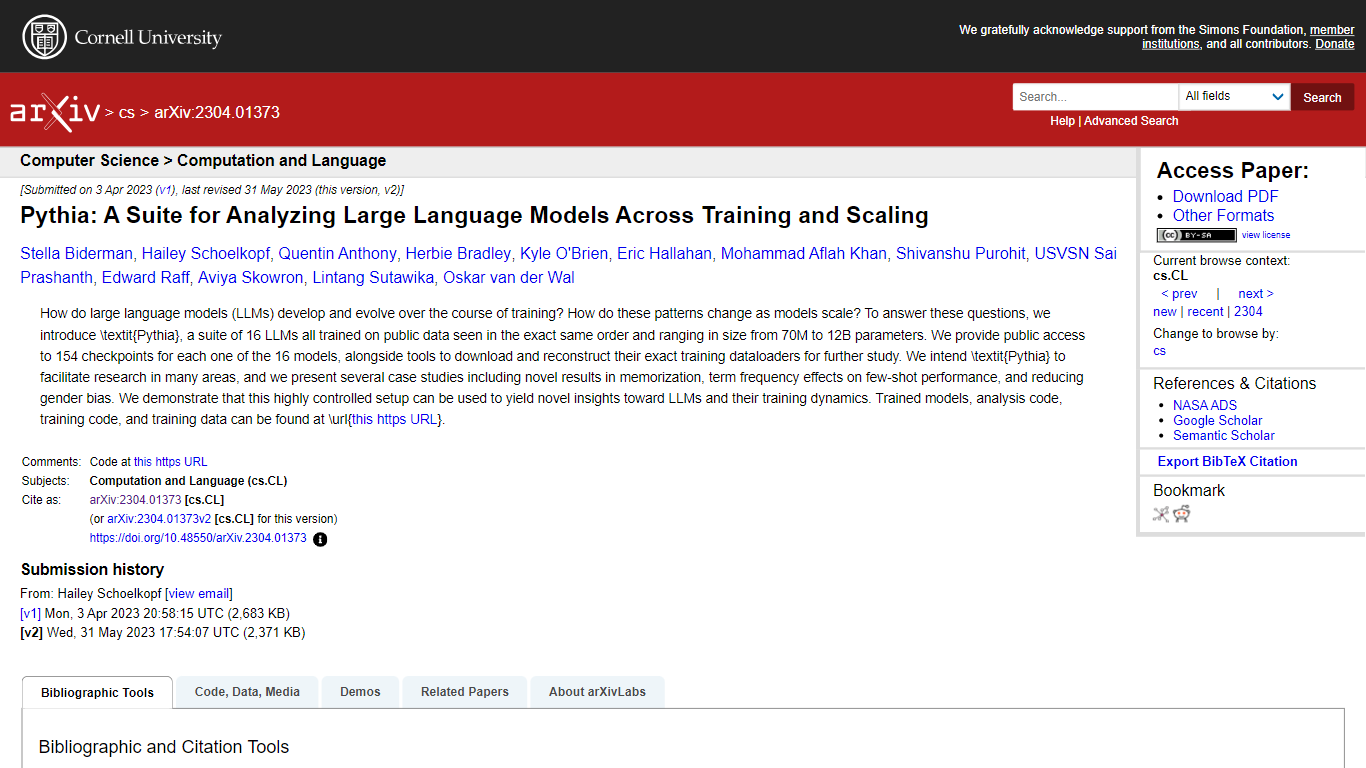
Last updated 03-26-2024
Category:
Reviews:
Join thousands of AI enthusiasts in the World of AI!
Pythia
Pythia is an extensive suite designed to analyze the development and scaling of large language models (LLMs). It comprises 16 models, each trained with public data in a consistent order, featuring sizes ranging from 70 million to 12 billion parameters. The project provides public access to 154 checkpoints per model, as well as tools to reproduce training data loaders for in-depth research. Pythia aims to aid various research domains with case studies on topics like memorization, the impact of term frequency on few-shot learning, and strategies for mitigating gender bias. This carefully controlled environment offers unique insights into the training dynamics of LLMs. The suite includes trained models, analysis code, training code, and data, all accessible via its GitHub repository.
-
Suite for Analysis:** A comprehensive set of tools for conducting research on LLM training and scaling.
-
Size Variety:** LLMs ranging from 70M to 12B parameters, providing insights across different model scales.
-
Public Checkpoints:** Access to 154 checkpoints for each of the 16 LLMs.
-
Research Facilitation:** Tools and code for reconstructing training dataloaders to promote further study in the field.
-
Case Studies:** Presentation of case studies including findings in memorization, few-shot performance, and bias reduction.
1) What is Pythia?
ythia is a suite of 16 different large language models trained on public data in the exact same sequence, with sizes from 70M to 12B parameters.
2) Where can I access the Pythia trained models and related tools?
ou can find the trained models, analysis code, training code, and training data on GitHub at the provided URL within the website content.
3) What is the purpose of the Pythia suite?
he purpose of Pythia is to facilitate research across various areas concerning the training dynamics and scaling of large language models.
4) What topics can researchers explore with Pythia?
esearchers can study memorization in LLMs, the effects of term frequency on few-shot performance, and strategies to reduce gender bias, among other aspects.
5) How many checkpoints does Pythia provide for each model?
here are 154 checkpoints available for each of the 16 models included in the Pythia suite.
.